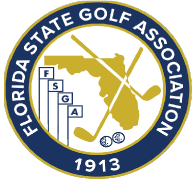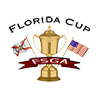Processing your payment, please wait.
Junior Match Play Championship (Boys 13-15, All Girls)
Junior Match Play Championship (Boys 13-15, All Gi - Match Play Rules - Reminders
MATCH PLAY
REMINDERS
These notes
are designed to act as assistance to players and officials when considering
match play format.
1. Match play, the game, is played by holes. A match is won by the side which is leading by a number of holes greater than the number of holes remanding to play.
2. General penalty for a breach of a Rule is loss of hole.
3. Playing outside teeing ground - Rule 11-4: Opponent may recall stroke, at his option if done immediately. No penalty, ball may be re-teed.
4. Playing out of turn - Rule 10-1c:
a. Teeing ground: Opponent may recall stroke, at his option, if done immediately. No penalty, ball may be re-teed.
b. Through the green or in the hazard: Opponent may recall stroke, at his option, if done immediately. No penalty, ball is dropped.
c. On putting green: Opponent may recall stroke at his option, if done immediately. No penalty, ball is placed.
5. Ball in motion stopped or deflected:
a. By player's side - Rule 19-2a: One stroke penalty and the ball is played as it lies.
b. By opponent's side (accidentally) - Rule 19-3: No penalty. Player has option to replay the stroke immediately or play ball as it lies.
6. Playing wrong ball - Rule 15-2 or Playing from a wrong place - Rule 20-7: Playing a wrong ball or playing from a wrong place is a loss of hole.
7. Ball at rest moved:
a. By opponent's side (during search) - Rule 18-3a: No penalty, must replace ball.
b. By opponent's side other than during search (excluding opponent's ball) Rule 18-3b: Opponent penalized 1 stroke. Ball must be replaced.
c. By another ball - Rule 18-5: No penalty must replace ball. (This also applies on putting green.)
8. Ball interfering with or assisting play - Rule 22: Any player may have any ball lifted if he considers that it might interfere with his play or assist any other player, but this may not be done while another ball is in motion.
9. Conceding opponent's next stroke - Rule 2-4: When the opponent's ball is at rest, or deemed to be at rest under Rule 16-2, the player may concede the opponent to have holed out with his next stroke and the ball may be removed by either side with a club or otherwise.
NOTE: When the ball is overhanging the hole a concession cannot be granted until the player has been allowed enough time to walk to the hole with out undue delay and an additional 10 seconds to determine whether the ball is at rest (Rule 16-2).
If a concession is made (i.e. the player lifts, knocks or states the next stroke is good) before the additional 10 seconds, the player is in breach of Rule 1-2 and loses the hole, assuming Rule 2-2 (halved hole) did not apply. Be clear when conceding: GOOD PUTT could be interpreted to mean the next stroke is good.
10. Flagstick:
a. Unauthorized attendance or removal by opponent's side - Rule 17-2a: Opponent loses hole (however, if player sees the flag being attended or removed and raises no objection he shall be deemed to have authorized it).
b. Players ball striking flagstick or attendant - Rule 17-3: Loss of hole except in case of striking unattended flagstick when playing from off the green.
11. Claims - Rules 2-5: Claims must be made before any players tee off on the next hole or on the last hole of a match, before all players leave the putting green. No later claim shall be considered unless it is based on facts previously unknown to the player making the claim and the player making the claim had been given wrong information by an opponent.
12. Information - Rule 9: A player has the right to know how many strokes an opponent has taken because it might affect the way he plays. Thus, a player is penalized for given wrong information about the number of strokes taken - or for not informing his opponent of a penalty - unless he corrects the mistake before an opponent plays the next stroke.





